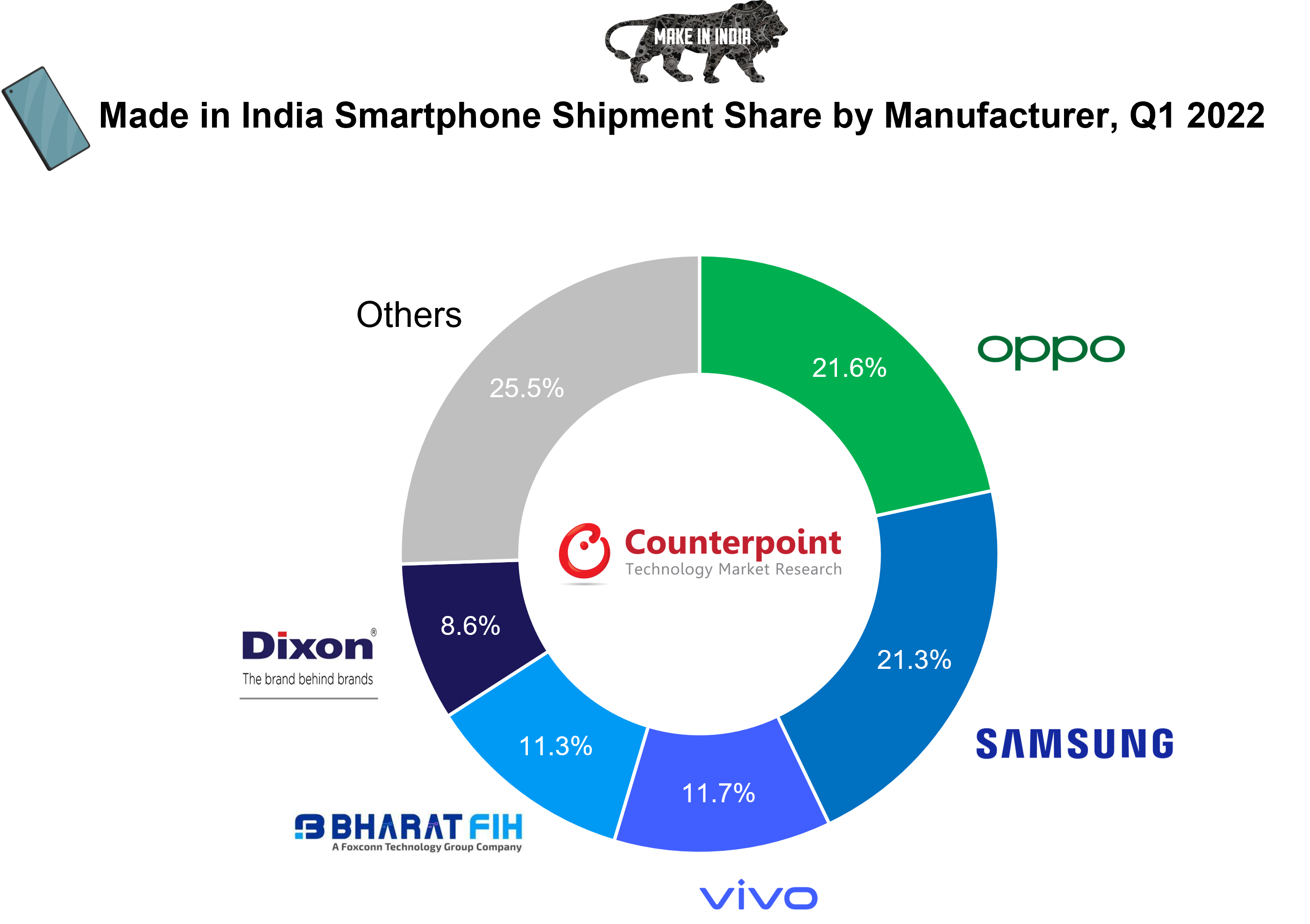The “Made in India” smartphones have witnessed a decent 7% percent increase in shipments in the first quarter of 2022, as per a report. India’s local smartphone manufacturing ecosystem stayed resilient despite the global component shortages. The credit for the growth goes to increasing smartphone demand as well as increasing exports in the country. Various initiatives by the Indian government to increase local manufacturing have also played a huge role.
A report by market research firm Counterpoint says that the ‘Made in India’ smartphone shipments rose 7% YoY in Q1 2022 to reach over 48 million units.
Oppo became the largest contributor to the “Made in India” smartphone shipments in the first quarter of 2022 with 10.36 million shipments that helped it achieve a market share of 21.6 percent, the report states. Oppo is followed closely by Samsung which shipped 10.22 million units taking the second spot with a market share of 21.3 percent.

The third-party EMS (electronic manufacturing services) providers managed to hold a 42 percent share in local manufacturing, recording a 4 percent YoY growth in terms of shipments. Bharat FIH was the largest EMS provider in Q1 2022 with an 11.3 percent shipment share, followed by Dixon Technologies with an 8.6 percent share.
As mentioned, the increase in shipment is due to increasing smartphone demand as well as soaring exports in the country. Moreover, the Government of India also deserves some credit for the growth of shipments.
“The government’s focus has been to make India a manufacturing hub. It has taken a lot of initiatives in this direction. The Production Linked Incentive (PLI) scheme for mobile handsets proved to be an accelerator for local manufacturing,” said Research Analyst Priya Joseph. “Similar PLI schemes have been introduced by the government in other strategic sectors, such as solar, semiconductors, automotive and electronic products. In the current times of uncertainties triggered by the pandemic, war, and other factors, the government feels it is important to have a resilient economy that can sustain such shocks,” Joseph added.
Related:
- India was one of the driving factors behind global smartwatch market growth in 2021
- Russia smartphone market declines in 2021, will likely sink further over Ukraine invasion
- Samsung Exynos loses market share as MediaTek chips continues to dominate
- Samsung tops Europe smartphone market in 2021, while Realme sees impressive growth







